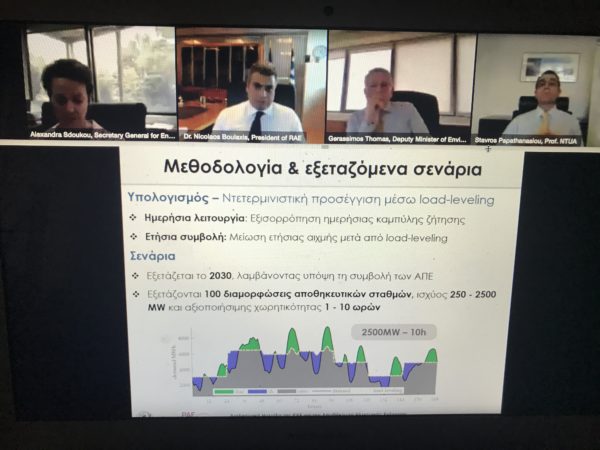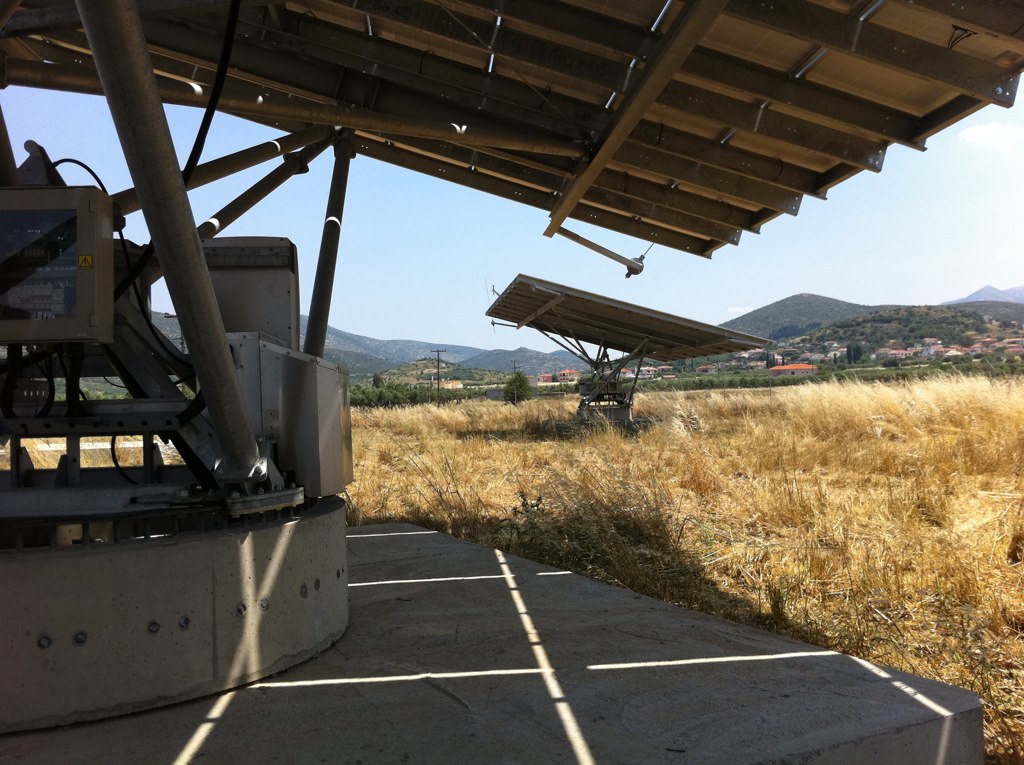Greece’s next renewable energy tender will take place on July 27, with two separate batches of capacity up for grabs, according to an announcement this week by the national energy regulator (RAE).
The first part of the tender will focus on solar plants up to 20 MW in size, with plans to award up to 482.03 MW of PV capacity. The second part of the procurement exercise will be for wind farms up to 50 MW size, with up to 481,45 MW of capacity on offer.
Investors who are interested in participating in the tender need to submit electronic applications to RAE by 5 p.m. (GMT+3) on June 29. If their applications qualify to participate in the tender, solar investors will be able bid from €0.063 (0.06)/kWh, while the starting bid for wind power projects has been set at €0.06299/kWh.
Investors can submit applications to participate in the tender without the need to propose tariffs. Bidding will only take place electronically on the day of the tender, by using the regulator’s software to ensure full transparency.
The energy regulator is using the application process to qualify projects and investors who meet the auction requirements. The rules require project developers to hold generation licenses and grid-connection agreements, in addition to providing financing guarantees.
Tender rules
A previous subscription rule – requiring both solar PV and wind energy tenders to be oversubscribed by at least 40% – also remains valid for the July 27 tenders. This is the reason why the authorities might end up awarding less capacity than planned in the upcoming summer tenders. For solar PV specifically, the tender subscription rules mean that at least 674,8 MW of PV must enter the tender for the full 482 MW of capacity to be allocated in July.
The regulator recently granted generation licenses for at least 800 MW of PV capacity, pv magazine has learned. However, this doesn’t necessarily mean that all of this capacity will qualify to participate in the tender, as eligible projects must also have grid-connection agreements in place and provide financial guarantees.
Winning PV projects up to 1 MW in size in the July auction will need to connect to the grid within 12 months. Solar farms up to 5 MW and projects larger than 5 MW will have 15 and 18 months to connect to the grid, respectively.
Greece’s energy regulator says there are about 2.1 GW of renewable energy projects awarded via the country’s tender regime that are currently under development.
In April, the authorities held a renewable energy tender that led to the lowest tariff ever awarded to a renewable energy project in the country. A 200 MW solar PV plant was granted to state-owned Public Power Corp. (PPC) for a record-breaking €0.04911/kWh. PPC Renewables, the renewable energy arm of PPC, will auction off the project's EPC tender on May 28.
Popular content
Storage framework
Meanwhile, Greece is preparing to establish an energy storage framework that will allow the country to reach its renewable energy goals, set in the recent national energy plan for 2030.
RAE hosted a webinar last week focusing on energy storage in Greece. The webinar was attended by some of Greece’s most senior ministers, as well as many energy stakeholders, including the country's leading solar PV associations.

Adonis Georgiadis, the minister for development and investment, told the webinar that the current Covid-19 crisis should work as leverage to speed up the transformation of the country’s energy system. He added that Greece should find innovative solutions to help it to achieve its energy and development goals.
The discussion also focused on a research project commissioned by RAE and developed by the National Technical University of Athens (NTUA). Stavros Papathanasiou, a professor in the NTUA school of electrical engineering, argued that Greece will need a combination of large pumped hydroelectric energy storage systems with smaller battery storage systems. The first would be used for longer-duration storage, over six hours, while the latter could be used to store energy up to four hours.
Papathanasiou said Greece will need about 1,500 MW to 1,750 MW of new energy storage capacity in order to meet 60% of its 2030 electricity needs via renewable energy, which is in line with Greece’s national energy plan for 2030. Of this capacity, NTUA research suggests that 500 MW could come via battery systems, with the rest to come from hydroelectric energy storage.
Greece’s vice-minister for energy and the environment, Gerasimos Thomas, said that the NTUA research would help the government to quantify its energy storage goals. The ministry’s general secretary for energy and fossil fuel resources added that Greece will need to invest about €500 million by 2025 in order to reach its electricity goals.
The Greek authorities said in September that they will phase out coal by 2028, with most lignite plants to be taken off the grid within the next few years.
Government stakeholders said during the RAE webinar that the government is not losing time. A Greek energy storage framework will likely be brought forth for public consultation in the next few months.
This content is protected by copyright and may not be reused. If you want to cooperate with us and would like to reuse some of our content, please contact: editors@pv-magazine.com.


2 comments
By submitting this form you agree to pv magazine using your data for the purposes of publishing your comment.
Your personal data will only be disclosed or otherwise transmitted to third parties for the purposes of spam filtering or if this is necessary for technical maintenance of the website. Any other transfer to third parties will not take place unless this is justified on the basis of applicable data protection regulations or if pv magazine is legally obliged to do so.
You may revoke this consent at any time with effect for the future, in which case your personal data will be deleted immediately. Otherwise, your data will be deleted if pv magazine has processed your request or the purpose of data storage is fulfilled.
Further information on data privacy can be found in our Data Protection Policy.